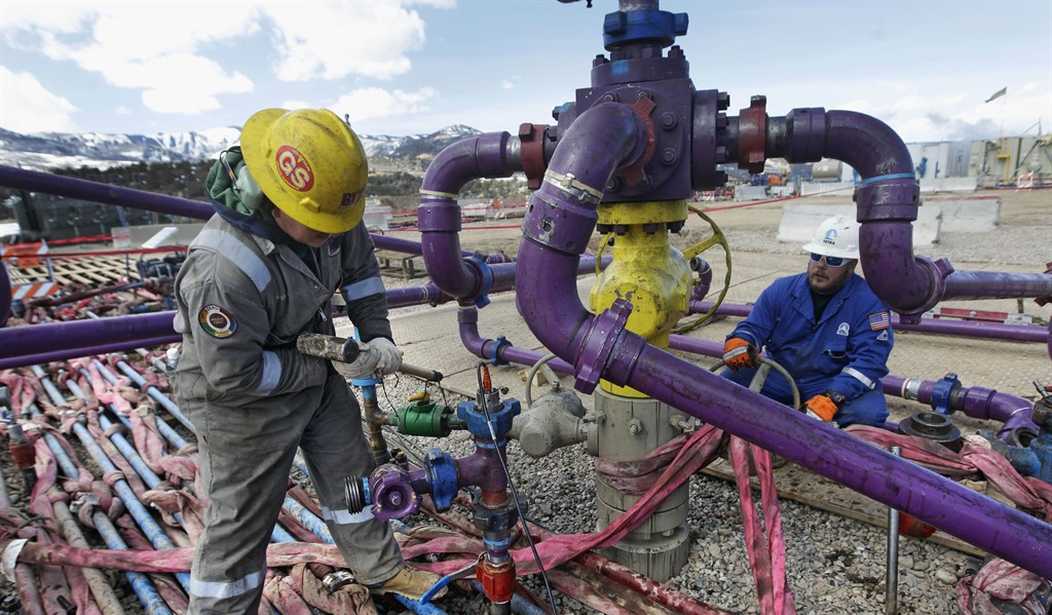MONACA, Pennsylvania -- All Darrin Kelly wanted for the energy workers in Western Pennsylvania was that the Democratic presidential hopefuls would talk to them before going to war against shale.
That opportunity slipped away last Friday when Elizabeth Warren joined Bernie Sanders in calling for a total fracking ban.
"On my first day as president, I will sign an executive order that puts a total moratorium on all new fossil fuel leases for drilling offshore and on public lands. And I will ban fracking -- everywhere," Warren tweeted.
"It is disappointing that any national candidate would not come in here and want to talk to the men and women of this area first before unilaterally making that decision," said Kelly, a charismatic Pittsburgh firefighter who is also the head of the powerful and influential Allegheny Fayette Labor Council, which represents workers stretching from Pittsburgh to the borders of Maryland and West Virginia.
The rest of the Democratic hopefuls will follow suit, with the possible exceptions of Joe Biden and Ohio Rep. Tim Ryan. At least, that's the prediction of Keystone College political science professor Jeff Brauer.
"The natural gas industry employs well over 40,000 people just in this region alone," Kelly said. "Countless more indirectly, providing economic opportunity for generations of families and communities that had been hollowed out by the demise of manufacturing and coal in this area."
Donald Trump won Pennsylvania with just over 40,000 votes in 2016.
Kelly doesn't think he is entitled to the presidential candidates' time. He just knows what happens when the energy labor force in Western Pennsylvania isn't behind the Democratic nominee.
"You cannot win the presidency if you are a Democrat without Pennsylvania," Brauer reminds bluntly.
Recommended
Democrats have won Pennsylvania in past presidential years because of outsized margins in Philadelphia, Pittsburgh and their suburbs. That support has been declining since Bill Clinton won 28 of the state's 67 counties in 1996.
Barack Obama won 13 of the 67 counties in 2012.
Trump's magic came in rural and post-industrial counties such as Luzerne and Erie, but most importantly in the populous counties around Pittsburgh, where shale is king and fracking is seen as the second coming of the steel industry.
They may look like ordinary construction cranes to someone unfamiliar with the history of this region. But if you're from here, they look like something different. Building the ethane cracker plant, each of these cranes looks like a new colossus rising from the ashes of yesterday's despair.
Building the plant has brought in 6,000 good-paying jobs, with more to come. Ultimately, there will be 600 permanent jobs at the plant, with industry analysts predicting triple that amount in supporting industries.
Jobs postings are everywhere touting opportunities, no matter the skill level -- high school education, trade school certificate, chemists, engineers, information technology, labor. If you reliably turn up for work, there is likely a career for you in the oil and gas industry.
"And if you think our workers don't care for the environment or climate change you are wrong," said Kelly. "They are the ones not only working in the industry, but they live here, play here, raise their kids here, hunt, fish, boat, ski, swim, and hike. They want to be in a responsible industry," he said.
The high tides of the frackers and crackers will be offset by the sinking tide of the broader U.S. economy, experts predict. "We're going to probably enter at least a little bit of an economic downturn," Brauer warns, "which is the natural part of the cycle. And it's probably not going to be the greatest timing for President Trump since that's his strength."
"But if the Democrats continue to make these arguments and push these issues which are going to hurt the economy and these key states, then it plays right into Trump's narrative," he adds with a twist.
Brauer suggested Trump could easily argue: "This is part of the cycle and what's going to happen, but would you rather have me, who's going to have less regulations and not wipe out entire industries and try to build back the manufacturing base and try to get jobs to come back in the United States, or you have a Democrat who is so far to the Left, who's willing to get rid of entire industries because of some environmental concerns that can be addressed, without destroying the whole industry?"
That's not a tough question for most Western Pennsylvanians. But it poses a tough question for Biden and the other 2020 Democrats.

























Join the conversation as a VIP Member